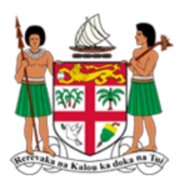Best Water Law Lawyers in Fiji
Share your needs with us, get contacted by law firms.
Free. Takes 2 min.
Or refine your search by selecting a city:
List of the best lawyers in Fiji
About Water Law in Fiji
Water Law in Fiji refers to the body of legislation and regulations that govern the rights, usage, management, conservation, and allocation of water resources throughout the country. Water is an essential resource in Fiji, supporting agriculture, industry, households, and the natural ecosystem. Managing this resource fairly and sustainably is critical, and the legal framework addresses how water resources are accessed, shared, and protected. These laws are in place to balance the needs of individuals, communities, businesses, and the environment, ensuring long-term sustainability and resolving disputes that may arise from water use.
Why You May Need a Lawyer
There are several situations where individuals or organizations may require legal assistance in the field of Water Law in Fiji. Some common scenarios include:
- Land Development or Agriculture: When developing land or starting agricultural projects, you may need guidance on water extraction rights and irrigation access.
- Business Operations: Companies requiring significant amounts of water for industrial or commercial purposes may need legal support to obtain the necessary permits or resolve disputes over water use.
- Disputes Between Neighbors: Conflicts over shared water sources, such as streams or wells, often need legal intervention to clarify rights and responsibilities.
- Conservation Issues: If you are involved in environmental conservation or believe that illegal water extraction is harming local ecosystems, a lawyer can advise on reporting and remedial actions.
- Community Rights: Villages and indigenous groups may seek clarification or protection of traditional water rights, especially if faced with commercial developments.
- Government Regulations: Navigating complex licensing and compliance issues with government water authorities can be challenging without legal advice.
Local Laws Overview
Fiji’s Water Law is governed by several statutory bodies and legal instruments, most notably:
- Water Authority of Fiji Act 2007: Establishes the Water Authority of Fiji, outlining its responsibilities for supplying and managing water and wastewater services.
- Rivers and Streams Act (Cap 136): Addresses issues relating to the use, rights, and protection of rivers and streams across Fiji.
- Water Supply Act (Cap 144): Regulates the supply of water to consumers and the responsibilities of supply authorities.
- Fisheries Act (Cap 158) and Related Environmental Laws: Contains provisions to prevent pollution and overuse of water resources that may affect fisheries and biodiversity.
- Customary Rights: Fiji’s constitution and local by-laws respect customary rights of indigenous communities to access and use traditional water sources, although these may be subject to regulation.
- Environmental Management Act 2005: Governs the environmental impact of water-related activities and requires certain developments to undertake environmental assessments.
These laws collectively provide a comprehensive framework but can be complex to navigate, especially as regulations may change or overlap, and customary rights may need to be balanced with statutory law.
Frequently Asked Questions
What are my rights to use water from a river or stream on my property?
Generally, you may have the right to reasonable use of water that runs through or alongside your property, but usage is regulated to prevent deprivation of rights to others and to protect the environment. Permits may be required for certain uses.
Do I need a permit for extracting groundwater or drilling a borehole?
Yes, extracting significant amounts of groundwater or drilling for water typically requires a permit from the appropriate government authority. It is advisable to seek legal advice before proceeding.
What can I do if my neighbor is blocking or polluting a shared water source?
You may have legal grounds to seek redress under the Rivers and Streams Act and other applicable legislation. Consulting a Water Law lawyer will help determine the best course of action.
How are water rights affected by customary ownership?
Customary or indigenous rights to water are recognized under Fiji’s legal system, but may intersect with state regulation. Resolving conflicts often requires legal expertise and sometimes mediation.
Is it legal to construct a dam or divert a waterway?
Major works such as dams, diversions, or large-scale alterations to watercourses usually require environmental assessments and permits from relevant authorities.
What laws protect water from pollution in Fiji?
Pollution control is covered under the Environmental Management Act, Fisheries Act, and specific regulations aimed at protecting water quality for all users.
Are there penalties for illegal water extraction?
Yes, illegal extraction or use of water resources can result in substantial fines, orders to restore the damage, and in some cases, criminal prosecution.
How do I apply for a water usage permit?
Permit applications are made through the Water Authority of Fiji or other relevant government agencies. Consulting with a lawyer ensures that your application is complete and complies with all requirements.
Can communities collectively own and manage water resources?
Yes, traditional communities can collectively manage water resources, especially where customary rights are recognized, but must coordinate with statutory authorities.
Where can I report illegal dumping or water contamination?
Reports can be made to the Department of Environment, Water Authority of Fiji, or the local police. Legal support may help you navigate the complaint process.
Additional Resources
If you require further support or wish to research Water Law in Fiji, the following resources can be helpful:
- Water Authority of Fiji - Responsible for the management of water supply and wastewater services.
- Department of Environment - Handles environmental regulation and enforcement concerning water quality and conservation.
- Ministry of Lands and Mineral Resources - Manages state land and water, including permits, concessions, and disputes.
- Fiji Environmental Law Association - Offers information and sometimes legal support on environmental and water matters.
- Local provincial councils and Native Lands Commission - Assist with customary rights and community water issues.
Next Steps
If you believe you require legal assistance in Water Law matters in Fiji, consider the following steps:
- Gather all relevant documents, such as land titles, permit applications, notices from authorities, and records of disputes or agreements.
- Identify your primary concerns or objectives, whether securing water rights, resolving a dispute, or ensuring legal compliance for a project.
- Consult with a qualified lawyer who specializes in Water Law or environmental law in Fiji. They can provide tailored advice and represent your interests.
- Contact appropriate government bodies for guidance, especially when seeking permits or making complaints regarding water use or pollution.
- Monitor any ongoing issues and maintain clear records of your interactions and actions taken.
Water Law in Fiji can be complex due to overlapping statutory and customary rights. Professional legal advice ensures your interests are protected while supporting the sustainable use and management of this vital resource.
Lawzana helps you find the best lawyers and law firms in Fiji through a curated and pre-screened list of qualified legal professionals. Our platform offers rankings and detailed profiles of attorneys and law firms, allowing you to compare based on practice areas, including Water Law, experience, and client feedback.
Each profile includes a description of the firm's areas of practice, client reviews, team members and partners, year of establishment, spoken languages, office locations, contact information, social media presence, and any published articles or resources. Most firms on our platform speak English and are experienced in both local and international legal matters.
Get a quote from top-rated law firms in Fiji — quickly, securely, and without unnecessary hassle.
Disclaimer:
The information provided on this page is for general informational purposes only and does not constitute legal advice. While we strive to ensure the accuracy and relevance of the content, legal information may change over time, and interpretations of the law can vary. You should always consult with a qualified legal professional for advice specific to your situation.
We disclaim all liability for actions taken or not taken based on the content of this page. If you believe any information is incorrect or outdated, please contact us, and we will review and update it where appropriate.
Browse water law law firms by city in Fiji
Refine your search by selecting a city.
















